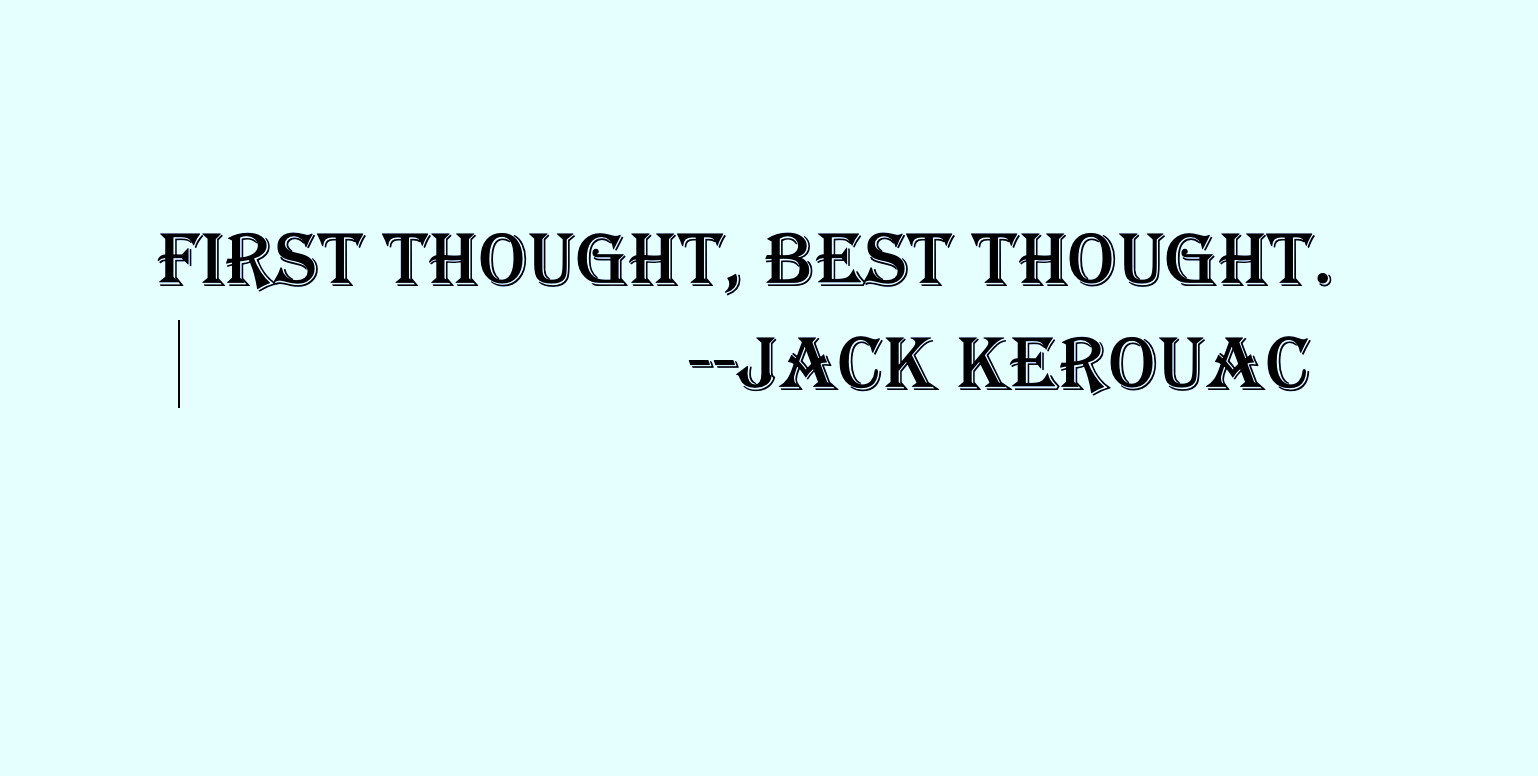The 69 Pages of Writing Advice Denis Johnson Collected from Flannery O’Connor, Jack Kerouac, Stephen King, Hunter Thompson, Werner Herzog & Many Others

The internet is full of inspirational quotations about writing, many of them from accomplished and respectable writers. But what need could such writers have of inspirational quotations themselves? Surely true literary art flows from its authors without need of encouraging words, demand though it may sustained periods of labor, frustration, and even suffering. These days, more than a few who seek to create such art spend time studying not just its past masterworks but its living masters. “Some years ago,” the novelist Karan Mahajan recently tweeted, “I was lucky to take a class with Denis Johnson, who dressed like a card-shark, in flashy jackets and (unlike a card-shark) wept over sentences. He gave my class a 69-page list of writing quotes he returned to frequently.”
Johnson’s list, which you can see in PDF form here, shows that at least one of our era’s most celebrated writers swore by the kind of writing advice most of us scroll past every day. Though somewhat eccentrically formatted, it rounds up a great deal of valuable wisdom from novelists, poets, and playwrights — as well as philosophers, sculptors, filmmakers, and other figures besides — from different lands and different times.
In it you’ll find these reflections on the art, craft, and life of writing, among many others:
- “In genius we perceive our own rejected thoughts, returning to us with a kind of alienated majesty.” — Ralph Waldo Emerson
- Simplicity is not an end in art, but we usually arrive at simplicity as we approach the true sense of things.” — Constantin Brâncu?i
- The first and most obvious characteristic of fiction is that it deals with reality through what can be seen, heard, smelt, tasted, and touched.” ? Flannery O’Connor
- “Writing, ideally, is recognizing your bad writing.” — August Wilson
- “One is always seeking the touchstone that will dissolve one’s deficiencies as a person and as a craftsman. And one is always bumping up against the fact that there is none except hard work, concentration, and continued application.” — Paul William Gallico
- “But what is art, really, but a good instinct for staying alive in your own alley?” — Hunter S. Thompson
- There is a microscopically thin line between being brilliantly creative and acting like the most gigantic idiot on earth. — Cynthia Heimel
- “A writer is a person for whom writing is more difficult than it is for other people.” — Thomas Mann
- “I learned never to empty the well of my writing, but always to stop when there was still something there in the deep part of the well, and let it refill at night from the springs that fed it.” — Ernest Hemingway
- “First thought best thought.” — Jack Kerouac
- “The job boils down to two things: paying attention to how the real people around you behave and then telling the truth about what you see.” — Stephen King
- “The important thing is that there should be a space of time, say four hours a day at least, when a professional writer doesn’t do anything else but write. He doesn’t have to write, and if he doesn’t feel like it, he shouldn’t try. He can look out of the window or stand on his head or writhe on the floor. But he is not to do any other positive thing, not read, write letters, glance at magazines, or write checks. Write or nothing.” — Raymond Chandler
- “I know this, with a sure and certain knowledge: a man’s work is nothing but this slow trek to rediscover, through the detours of art, those two or three great and simple images in whose presence his heart first opened.” — Albert Camus
- “Don’t look back.” – Bob Dylan
Over the course of these 69 pages, certain themes emerge: the importance of writing with one’s “blood,” the unimportance of critics, the value of simplicity, the danger of adjectives (and other excess description), the necessity of letting nothing block the flow of the first draft. While many of these quotations offer practical advice — much of it about consistently putting in the hours, both conscious and unconscious — some approach from a more oblique angle not just “writing” as a pursuit but the living of life itself. “To fail to embrace my dreams now would be a disgrace so great that sin itself could not find a name for it,” writes Werner Herzog in the diary he kept during the agonized making of Fitzcarraldo. If this inspired the author of Jesus’ Son and Tree of Smoke, it ought to inspire the rest of us as well.
Related Content:
19 Quotes on Writing by Gore Vidal. Some Witty, Some Acerbic, Many Spot On
Stephen King’s 20 Rules for Writers
Kurt Vonnegut’s Eight Tips on How to Write a Good Short Story
7 Tips From Ernest Hemingway on How to Write Fiction
Write Only 500 Words Per Day and Publish 50+ Books: Graham Greene’s Writing Method
Based in Seoul, Colin Marshall writes and broadcasts on cities, language, and culture. His projects include the Substack newsletter Books on Cities, the book The Stateless City: a Walk through 21st-Century Los Angeles and the video series The City in Cinema. Follow him on Twitter at @colinmarshall or on Facebook.
The 69 Pages of Writing Advice Denis Johnson Collected from Flannery O’Connor, Jack Kerouac, Stephen King, Hunter Thompson, Werner Herzog & Many Others is a post from: Open Culture. Follow us on Facebook, Twitter, and Google Plus, or get our Daily Email. And don't miss our big collections of Free Online Courses, Free Online Movies, Free eBooks, Free Audio Books, Free Foreign Language Lessons, and MOOCs.
from Open Culture https://ift.tt/37FYlcE
via Ilumina
Comments
Post a Comment